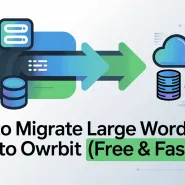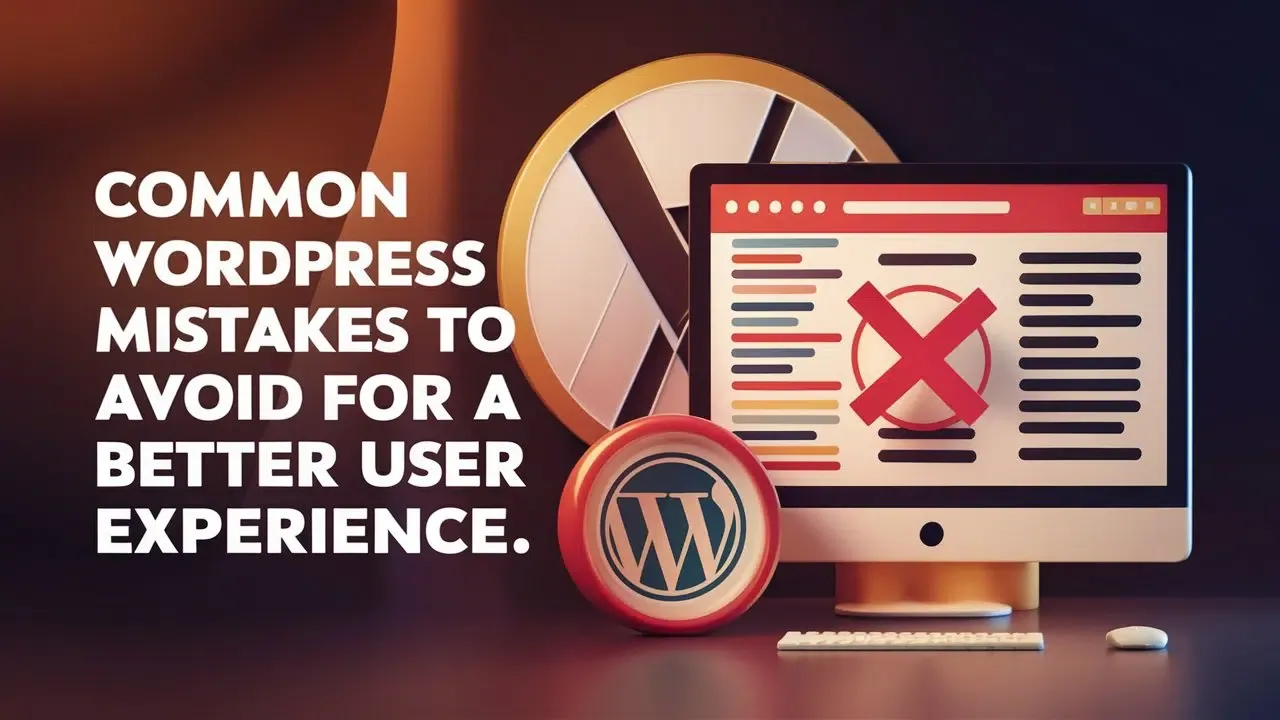Having a strong online presence is key for businesses and individuals. Whether you’re starting a personal blog, an online store, or a business website, the success of your site depends on how well you choose the right web host and hosting plan. With so many options out there, knowing how to choose the right web host and hosting plan can feel overwhelming, especially if you’re new to web development. Factors like speed, reliability, customer support, and the ability to grow as your website expands are crucial to making sure your site runs smoothly.
This easy-to-follow guide from Owrbit will help you understand how to choose the right web host and hosting plan for your needs. We’ll look at different types of hosting like shared hosting, VPS hosting, dedicated servers, and cloud hosting. We’ll also talk about important things like bandwidth, storage, and security that affect your website’s performance and how users experience it. By the end of this guide, you’ll be ready to choose the right web host and hosting plan, ensuring a smooth and successful online journey.
To make the best decision, it’s important to consider several factors when you choose the right web host and hosting plan. Things like customer support, uptime, and scalability all play a part in choosing the right web host and hosting plan that suits your business or personal website. With the right guidance, you’ll feel confident in your ability to choose the right web host and hosting plan for your specific needs. Choose the right web host and hosting plan, and you’ll be on your way to a successful online presence.

Understanding Web Hosting Basics :
Web hosting is like renting a home for your website on the internet. When you create a website, it consists of various files, such as text, images, videos, and data. These files need a place to live so that people can access them online. That’s where web hosting comes in.
Imagine your website as a book. Just like a book needs a library to be stored and read by others, your website needs a web host to store its files and make them available on the internet. Web hosting companies provide the servers, which are powerful computers designed to keep your website up and running.
Here’s how it works: When someone types your website’s address (like www.yourwebsite.com) into their browser, that browser sends a request to the web hosting server. The server then delivers your website’s files to the user’s browser, allowing them to see and interact with your site.

Types of Web Hosting Explained :
- Shared Hosting :
- This is the most affordable option, where multiple websites share a single server. It’s perfect for small websites or blogs with low traffic but can be slower and less reliable for high-traffic sites since resources are shared.
- VPS Hosting (Virtual Private Server) :
- VPS hosting gives you more control than shared hosting. It’s still shared, but you get a dedicated portion of the server’s resources. This is a good choice for growing websites that need more power and customization.
- Dedicated Hosting :
- With dedicated hosting, you get an entire server just for your website. This option provides high performance, security, and full control but is more expensive. It’s suitable for large businesses or high-traffic websites.
- Cloud Hosting :
- Cloud hosting uses a network of servers to host your website, offering flexibility and scalability. This means you can easily upgrade your resources as your website grows, making it a great choice for websites that experience fluctuating traffic.
- Managed WordPress Hosting :
- Specifically designed for WordPress websites, this hosting plan offers specialized features and services tailored to WordPress. It includes automatic updates, security, and backups, which makes it a hassle-free option for WordPress users.
Assessing Your Website Needs :
When selecting a web hosting plan, it’s crucial to evaluate your website’s specific needs to ensure you choose the best option. Here are the key factors to assess:
How to Determine Your Hosting Requirements :
- Website Type :
- If you’re running a personal blog, shared hosting might be enough.
- For an e-commerce store or business website, you may need more resources, like VPS or cloud hosting.
- Content and Features :
- A website with simple text and images won’t need as much storage as a site with large videos, files, or heavy e-commerce functionality.
- If your site will feature interactive elements (e.g., forums, social media integrations), you’ll need a hosting plan that supports these features.
- Budget :
- Your budget plays a big role in determining which hosting option to choose. Shared hosting is the most affordable, while dedicated hosting comes at a higher cost.
- Technical Expertise :
- If you’re a beginner, managed hosting options might be better since they take care of maintenance and security. For more technical users, VPS or dedicated hosting offers greater control.
- Growth Potential :
- If you expect your site to grow rapidly, choose a scalable option like cloud hosting or VPS hosting that allows you to easily upgrade resources as needed.
The Importance of Website Traffic Projections :
Estimating your website’s traffic is crucial when choosing the right web host and hosting plan. Here’s why:
- Bandwidth Requirements :
- Websites with high traffic need more bandwidth to ensure smooth performance and fast load times. If you anticipate heavy traffic, a plan with more bandwidth, like VPS or dedicated hosting, is necessary to avoid downtime or slow speeds.
- Scalability Needs :
- If you expect significant traffic growth in the future, a scalable hosting plan like cloud hosting will allow you to adjust your resources quickly without disruption.
- Performance Optimization :
- High traffic means your hosting plan must be optimized for performance. You’ll want a hosting plan that offers fast load times and high uptime to keep your visitors happy and engaged.
- Cost Considerations :
- While it’s important to plan for future growth, you should also be realistic about current traffic levels. Choosing an overpowered hosting plan can result in unnecessary costs, so it’s essential to balance traffic projections with your budget.
By assessing your website needs and projecting traffic, you’ll be able to choose the right hosting plan that meets your current and future demands. This approach helps ensure that your website performs well while staying within budget.

Key Features to Look for in a Web Hosting Provider :
When you want to choose the right web host and hosting plan, there are several key features to consider to ensure your website runs smoothly and meets your needs. Here are the main features to keep in mind:
- Reliability and Uptime :
- A good web host should offer at least 99.9% uptime to ensure your website is always accessible. Frequent downtime can lead to lost visitors and revenue, so make sure you choose the right web host and hosting plan with a strong uptime guarantee.
- Speed and Performance :
- Fast load times are essential for keeping visitors engaged and improving SEO. When you choose the right web host and hosting plan, look for providers who use SSDs, CDNs, and other technologies to enhance performance.
- Customer Support :
- Responsive and helpful customer support is crucial. Choose the right web host and hosting plan by ensuring the provider offers 24/7 support through multiple channels like live chat, phone, and email to quickly resolve any issues.
- Scalability :
- As your website grows, your hosting needs may change. When you choose the right web host and hosting plan, make sure the provider offers easy upgrades, whether it’s from shared hosting to VPS or dedicated servers, to accommodate future growth.
- Security Features :
- Ensure the provider offers strong security measures such as SSL certificates, firewalls, DDoS protection, and regular backups. This will help keep your website safe, especially when you choose the right web host and hosting plan with robust security options.
- Storage and Bandwidth :
- Check if the host provides enough storage and bandwidth to handle your website’s data and traffic. Unlimited or high-limits are ideal for growing websites. Be sure to choose the right web host and hosting plan that meets your current and future needs.
- Easy-to-Use Control Panel :
- A user-friendly control panel (like cPanel) makes managing your website, emails, and files simple, even if you’re not very tech-savvy. Choose the right web host and hosting plan that offers an intuitive control panel for a smooth experience.
- Pricing and Plans :
- Compare pricing and hosting plans to find one that fits your budget and requirements. When you choose the right web host and hosting plan, make sure you look out for hidden fees, renewal rates, and any promotional discounts.
- Backup and Recovery Options :
- A good hosting provider should offer automatic backups and a straightforward recovery process. This ensures you never lose your website’s data, especially when you choose the right web host and hosting plan that includes solid backup features.
By considering these key features, you’ll be better equipped to choose the right web host and hosting plan that fits your website’s needs and supports its growth.
Pricing and Value for Money :
When it comes to choosing a web hosting provider, pricing and value for money are key factors. It’s important to balance affordable rates with the features and performance you need. Here’s what to consider:
Understanding Hosting Plans: Monthly vs. Annual Pricing :
Hosting providers often offer two main types of pricing: monthly and annual. While monthly pricing can offer more flexibility, it tends to be higher in the long run. Annual pricing usually comes with a discounted rate, but you’ll need to commit to a full year upfront.
- Monthly Plans: Good if you’re unsure about the long-term needs of your website or want to test the hosting service first. However, you’ll end up paying more each month.
- Annual Plans: These typically offer savings on the overall cost and are ideal if you’re committed to your website for the long haul. But be sure to check the renewal rate after the first year, as it may increase.
When deciding between monthly and annual pricing, make sure you assess your website’s needs and financial situation.
Hidden Costs in Web Hosting Plans to Watch For :
While the initial price of a hosting plan may seem appealing, it’s important to be aware of hidden costs that can quickly add up:
- Renewal Rates: Hosting plans often start with a low introductory price, but the renewal rate can increase significantly after the first term.
- Add-ons and Upgrades: Many hosts charge extra for features such as SSL certificates, backups, or additional security.
- Domain Registration: Some hosts offer free domain registration for the first year, but you’ll need to pay for renewal afterward.
- Migration Fees: If you need help moving your website from another host, some providers charge migration fees.
- Customer Support Fees: Certain levels of customer support (like premium or 24/7 service) might not be included in the basic plan and could require additional payment.
To make sure you’re getting value for money, carefully read the terms and conditions and consider the long-term cost of the hosting plan, including any hidden fees.
By understanding these factors, you’ll be better equipped to choose a hosting plan that offers the best pricing and value for money without unexpected costs down the road.
User Reviews and Reputation :
When selecting a web hosting provider, user reviews and the reputation of the provider play a crucial role in making an informed decision. Here’s how you can use them to your advantage:
How to Research Web Hosts: Where to Find Reviews
User reviews give you an inside look at the actual experience people have with a web hosting provider. Here’s where you can find reliable reviews:
- Independent Review Websites: Sites like Trustpilot, G2, and SiteGround’s review page often feature honest feedback from users who have tested the hosting services. These sites offer detailed pros and cons and ratings to help you assess the overall experience.
- Web Hosting Forums and Communities: Places like Reddit, Web Hosting Talk, and even Quora have dedicated sections for web hosting discussions. These forums allow users to share their personal experiences, ask questions, and give recommendations.
- Blog Reviews: Many bloggers and web development websites regularly review hosting providers. These reviews often include performance tests, uptime stats, and comparisons to other hosts. Look for blogs that offer in-depth reviews based on personal experience, rather than promotional content.
- Social Media: Check platforms like Twitter, Facebook, and LinkedIn for real-time user opinions and reviews. Search for hashtags like #webhosting or the name of the hosting provider to see honest comments.
When reading reviews, pay attention to patterns. A single negative review might not be a red flag, but consistent complaints about the same issue could be a warning sign.
The Role of Reputation in Choosing a Hosting Provider :
The reputation of a web host is one of the best indicators of its reliability and service quality. A good reputation reflects a history of providing high-quality service, customer support, and uptime. Here’s why it matters:
- Trustworthiness: A provider with a strong reputation is more likely to meet its promises. If a host has been in business for a long time with positive reviews, it shows they are trusted by customers.
- Customer Support: Reputable hosting providers tend to have better customer support. If users consistently report that a provider has responsive, helpful support, it’s a good sign that you’ll be taken care of if problems arise.
- Performance and Uptime: A well-regarded provider is likely to offer superior uptime and faster loading speeds. Reputation often reflects the overall performance of the service.
- Security and Reliability: A hosting provider with a solid reputation will typically prioritize security and have a proven track record in protecting customers from breaches, malware, or data loss.
In summary, researching web hosts through reviews and considering their reputation are essential steps in finding a hosting provider that meets your needs. Pay attention to both the quality of user feedback and the history of the provider to make an informed, confident choice.
Control Panel and User Experience :
When selecting a web hosting provider, the control panel is an important aspect of the user experience. A control panel allows you to manage your website, domain, emails, and other features of your hosting plan. Here’s why the control panel is essential for your hosting experience:
The Importance of a User-Friendly Control Panel :
A user-friendly control panel is key for both beginners and experienced website owners. Here’s why:
- Ease of Use: A well-designed control panel makes managing your website simpler. It should have an intuitive layout and easy-to-navigate features, so you don’t have to spend hours learning how to use it.
- Quick Access to Features: A good control panel organizes essential features like managing domains, installing apps, creating email accounts, and reviewing website statistics in one place. You should be able to find what you need quickly, without unnecessary clicks.
- Efficiency: With a streamlined control panel, you can perform tasks more efficiently—like updating website content, configuring security settings, or managing databases—saving you time and reducing frustration.
- Customization: Many control panels allow customization options to personalize your interface, making it easier to access frequently used tools and features.
- Support for Various Applications: A user-friendly control panel should offer one-click installation options for popular applications like WordPress, Magento, or Joomla, helping you set up your website quickly without technical expertise.
Popular Control Panels: cPanel, Plesk, and Others
There are several popular control panels that hosting providers typically offer, each with its own strengths and features:
- cPanel
- Most Commonly Used: cPanel is the most popular control panel, especially among shared hosting providers. It’s known for its simple interface and powerful features.
- User-Friendly: cPanel has a clean, organized dashboard that makes tasks like managing files, emails, and databases straightforward.
- Wide Compatibility: It works well with most Linux-based hosting services and offers a wide range of one-click installation tools for apps like WordPress.
- Plesk
- Multi-Platform: Unlike cPanel, which is mostly used for Linux-based hosting, Plesk supports both Linux and Windows servers.
- Modern Interface: Plesk has a more modern, visually appealing interface, with features that make managing websites and applications easier.
- Great for Developers: Plesk offers advanced features like Git integration and Docker support, making it a popular choice for developers who need extra control.
- DirectAdmin
- Lightweight and Efficient: DirectAdmin is known for its fast performance and simple interface. It’s a lightweight control panel that focuses on ease of use and essential features, making it a good choice for users who don’t need the complexity of cPanel or Plesk.
- Affordability: DirectAdmin tends to be more affordable than other control panels, which is great if you’re on a budget.
- ISPConfig
- Open-Source: ISPConfig is an open-source control panel that supports multiple Linux distributions. It’s designed for users who prefer a free option that still offers powerful features for managing websites and hosting services.
- Multi-Server Support: ISPConfig excels in multi-server environments, making it a great choice for managing several servers from one interface.
- Webmin
- Open-Source and Flexible: Webmin is another open-source control panel that provides a wide range of features for managing both servers and websites. It’s known for its flexibility and support for multiple server configurations.
- Technical Focus: Webmin is a bit more technical than others, so it’s better suited for advanced users who need a high level of customization.
Choosing the right control panel can significantly improve your experience when managing a website. A user-friendly interface helps you navigate through tasks quickly and efficiently, making it easier to focus on growing your site. Whether you prefer the simplicity of cPanel, the flexibility of Plesk, or an alternative option like DirectAdmin, the right control panel enhances your overall web hosting experience.
Common Mistakes to Avoid When Choosing a Web Hosting Provider :
When you want to choose the right web host and hosting plan, it’s easy to make mistakes that can impact your website’s performance and growth. Here are some common mistakes to avoid when choosing a web hosting provider:
- Choosing Based on Price Alone
- While it’s tempting to go for the cheapest option, it’s essential to look beyond the price tag. Don’t just choose the right web host and hosting plan based on cost—ensure the plan offers good value with features like reliability, speed, and customer support.
- Overlooking Performance and Speed
- Slow load times can hurt your user experience and SEO rankings. When you choose the right web host and hosting plan, make sure the provider offers fast servers and performance-enhancing technologies like SSD storage or Content Delivery Networks (CDNs).
- Ignoring Scalability
- Choosing a hosting plan that fits your website’s current needs is important, but as your website grows, so should your hosting capabilities. Ensure you can easily upgrade your plan to VPS or dedicated hosting when necessary when you choose the right web host and hosting plan.
- Not Considering Customer Support
- 24/7 customer support is a must in case issues arise. When you choose the right web host and hosting plan, look for providers with responsive and knowledgeable support teams available through live chat, phone, or email.
- Disregarding Security Features
- Security is crucial. Don’t choose the right web host and hosting plan without strong security features like SSL certificates, firewalls, and DDoS protection. These will help safeguard your data and protect your visitors.
- Skipping the Fine Print
- Always read the terms and conditions before committing. Some hosts offer low introductory prices but have high renewal rates. Make sure you understand the pricing structure when you choose the right web host and hosting plan, so you’re not caught off guard by hidden costs.
- Choosing a Host with Limited Features
- Don’t settle for a hosting plan that lacks essential features like enough storage, bandwidth, or backup options. When you choose the right web host and hosting plan, make sure it includes all the resources you need to keep your website running smoothly.
- Neglecting Backup and Recovery Options
- Regular backups are essential. Don’t choose the right web host and hosting plan that doesn’t offer automatic backups or an easy recovery process. Having a backup plan can save you from major headaches if your website is compromised or experiences downtime.
By avoiding these common mistakes, you can choose the right web host and hosting plan that fits your website’s needs and ensures long-term success.
Conclusion :
In conclusion, it’s important to choose the right web host and hosting plan to ensure your website’s success. By understanding the different hosting options like shared, VPS, dedicated, and cloud hosting, you’ll be in a better position to choose the right web host and hosting plan that fits your needs. Whether you’re starting a blog, running an online store, or growing a business website, selecting the right hosting plan is essential.
When you choose the right web host and hosting plan, make sure to consider factors like website traffic, budget, and technical expertise. These elements will help you find a plan that works for both your current needs and future growth.
Key features like reliability, speed, security, and customer support should be top priorities when you choose the right web host and hosting plan. This will ensure your website operates smoothly and can handle more visitors as your business grows.
Don’t forget to check reviews and evaluate the hosting provider’s reputation before you choose the right web host and hosting plan. The right provider will offer the best support and features for your specific website needs.
Ultimately, by taking the time to choose the right web host and hosting plan, you’ll set yourself up for a smooth, successful online presence.
Checkout Affordable Lifetime DirectAdmin Reseller Hosting By Owrbit 2024
Discover more from Owrbit
Subscribe to get the latest posts sent to your email.











